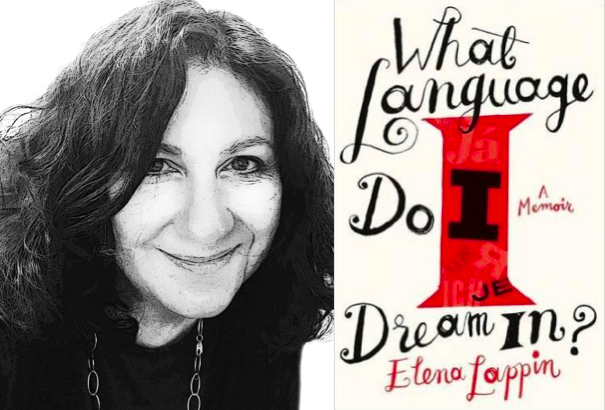What Language do I Dream in? by Elena Lappin; HarperCollins, 2017, ISBN 9781554-684632.
As a bilingual speaker of Hebrew and English as well as having some knowledge of French and German, I was intrigued by the title of this book. But the beginning is something of a surprise, as the author starts by describing a dramatic phone call which changed the course of her life and shook the very foundation of her knowledge of who she was and where she came from.
Speaking in Russian, the person at the other end of the line told her that the man she had known as her father all her life was not her real father, and that the man who had fathered her had been an American living in Moscow working as an undercover agent for the Soviet Union.
At that point the author starts to describe her life as a child growing up in Czechoslovakia, with her mother and the man she thought was her father but who, it later transpired, had married her mother when Elena was two years old, and had taken the two of them to live with him in Prague. Since both her parents had grown up in Russia, it was Russian that was the language spoken in their home. However, Elena’s early years and initial education were all in Czech, and that was her first and main language, or so she thought.
Interweaving stories and memories of her happy childhood in Prague, with occasional visits to her grandparents in Moscow, Elena relates how she immersed herself in Czech literature and culture, and how she appreciated and loved the ancient city of Prague itself. Thus it came as quite a shock to her at the age of sixteen when her parents moved to Hamburg, requiring them all – parents, Elena, and her younger brother Maxim – to learn a new language. Elena’s father worked as a translator and for him in particular the transition was not an easy one, but he was able to find work in a factory, translating technical texts and marketing material from German into Russian.
Like many Jewish families from eastern Europe and Russia, Elena’s family originally came from a small village in Ukraine, eventually gravitating to the city of Moscow. Much later in her life she discovered that most of her grandfather’s family had emigrated to the USA in 1914, just before the Russian Revolution, and that most of them had prospered there. Her paternal grandfather was the only one who had returned to the USSR together with his wife, and had made his life there.
The transition to a German-speaking environment was not easy for Elena, but she apparently adapted well to the language and the different attitudes and outlooks of her fellow-students, and even embarked on her undergraduate studies at the university of Hamburg. However, she found the atmosphere and subject matter (linguistics) unappealing, and decided to move on, ending up in the USA. In the course of her high-school studies Elena had applied herself to learning French and English, even spending time as an au pair in France and England, so that her knowledge of several languages enabled her to work in translating, editing and other spheres associated with publishing, as well as to continue with her linguistic studies.
After getting married and having children, Elena and her husband spent several years in Canada and the USA, eventually settling in London. It is from there that she has conducted the extensive genealogical research that has enabled her to trace the trajectory of her family across continents and cultures. The final segment of the book details how Elena has pursued the complex history of her family by combing through various archives and research sites, including that of the FBI, which held a dossier on her grandfather.
Most of the book is written in a lively and entertaining style, though I must confess I found the final segment somewhat tedious. But without a doubt, the author has made the most of her checkered linguistic history, and is still unable to decide which language she dreams in.
Republished from San Diego Jewish World


























